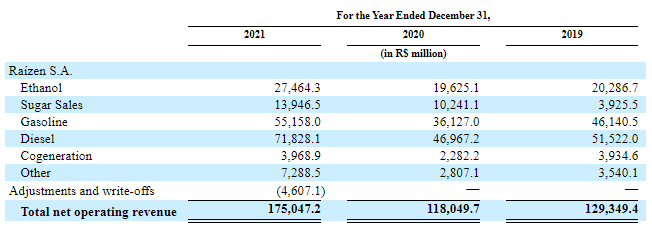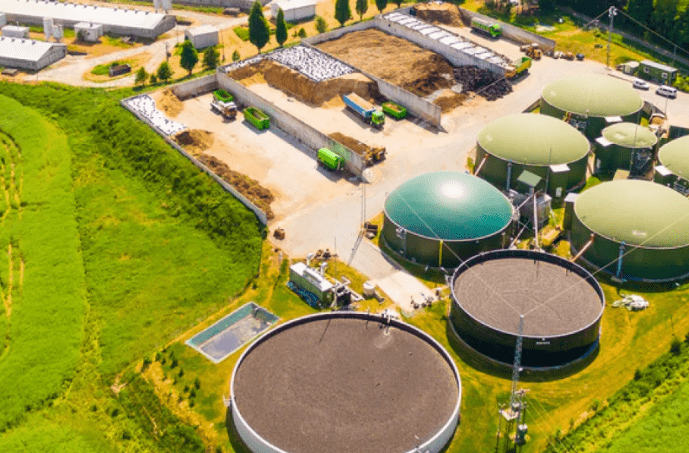Raízen, a joint venture between Cosan and Shell created in June 2011, increased its revenues from ethanol, sugar and gasoline in 2021.
The company produces more than 2,000 million liters of ethanol per year to supply the national and international market and four million tons of sugar, with 1.3 GW of installed capacity, which makes it one of the largest exporters of sugar and one of the the largest electric power generators in the world from sugar cane bagasse.
Raízen plants, harvests and processes sugarcane, the main raw material used in the production of sugar and ethanol.
Financial results of the company
The company also distributes fuel to more than 7,300 service stations in Brazil, Argentina and Paraguay under the Shell brand, with more than 1,300 Shell Select convenience stores, 70 distribution terminals and a presence in 69 airports supplying jet fuel.
Increasingly, Raízen has established itself as an integrated energy company with a diverse portfolio, from renewable sources such as biomass (and expanding to other sources, such as solar), to its core businesses of global distribution and sale of premium ethanol. and second generation (from sugar cane), sugar and other derivatives to business clients or “B2B”, in Brazil, Argentina and Paraguay, and operating a network of service stations and airport bases.
In addition, its operations include local commerce, through Grupo NÓS, a joint venture between Raízen and FEMSA Comercio.
Raízen
First-generation ethanol is produced in a chemical process called fermentation, whereby the sugar cane used in ethanol production is processed in the same way as for sugar production, and the resulting molasses is blended with sugar cane juice. sugar and yeast in tanks.
The byproduct of the fermentation process is then boiled and distilled and/or dehydrated to produce the various types of ethanol.
Raízen also produces second generation ethanol, or “E2G”, which emits 80% less carbon dioxide than fossil fuels. E2G is a cellulosic biofuel manufactured according to its patented technology.
The E2G production process consists of the hydrolysis and fermentation of bagasse and straw with enzymes and yeasts.
Raízen is a pioneer in the development of carbon circularity from the by-products of its production processes. It introduced biogas technology in its bioenergy parks, which is produced through a biodigestion process from vinasse and filter cake, and can be a substitute for methane in its various applications, including electricity production.
Raízen produces other products derived from sugarcane biomass, such as steam from excess bagasse in boilers, which can be used to move mechanical parts in bioenergy parks, as well as to generate electricity sold to the grid.
![]()

